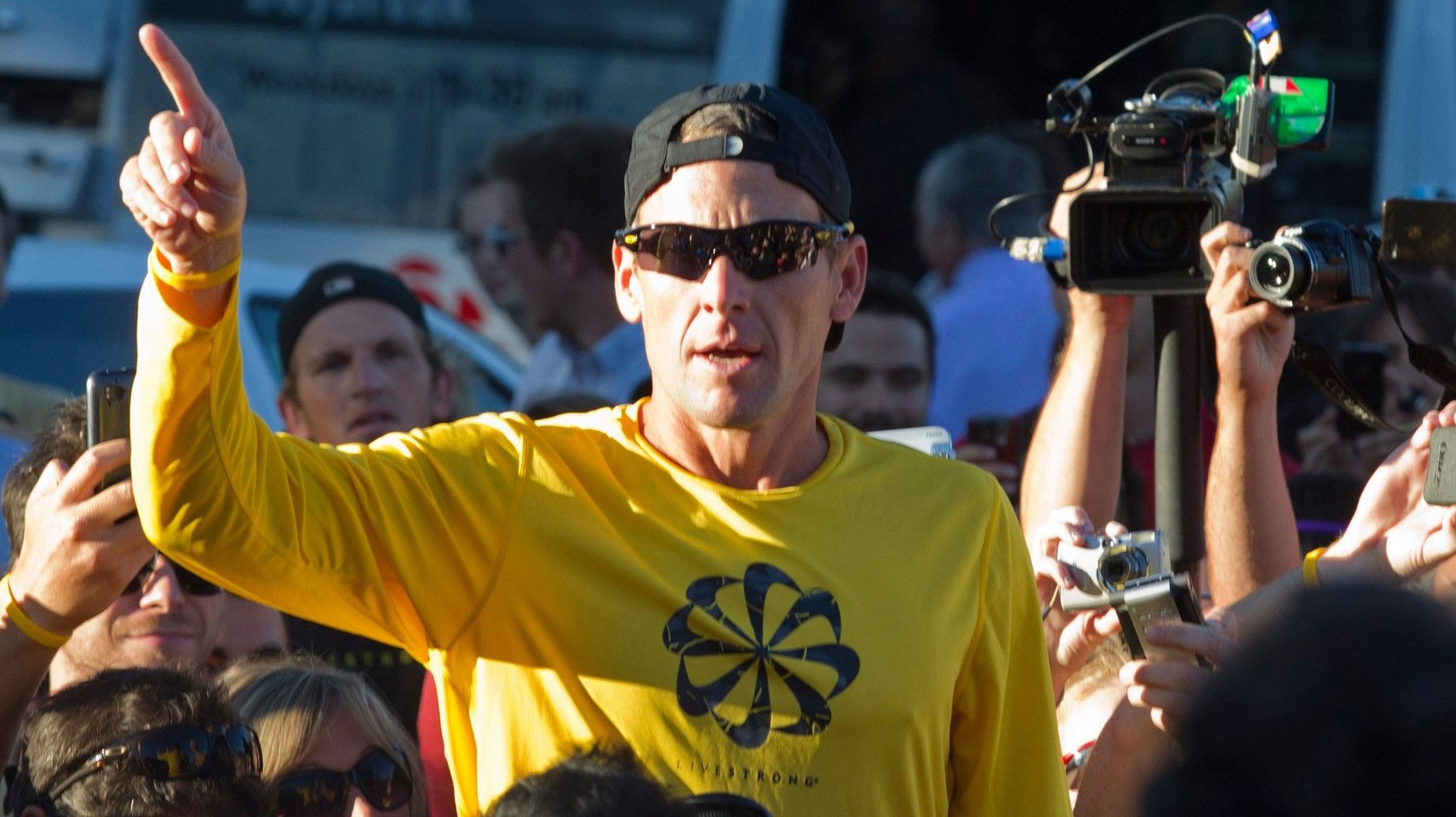The fateful coffee date that pushed Lance Armstrong to take real responsibility
Five years after former cyclist Lance Armstrong’s confession interview with Oprah Winfrey, the tape is still fascinating to watch. The historic exchange somehow holds suspense. You watch the opening, wondering whether the onetime American hero will admit to doping in the seven consecutive Tour de France competitions that he “won.” You look for signs that his apology for using a performance-enhancing cocktail is sincere.


Five years after former cyclist Lance Armstrong’s confession interview with Oprah Winfrey, the tape is still fascinating to watch. The historic exchange somehow holds suspense. You watch the opening, wondering whether the onetime American hero will admit to doping in the seven consecutive Tour de France competitions that he “won.” You look for signs that his apology for using a performance-enhancing cocktail is sincere.
In a new interview on the Freakonomics podcast, Armstrong now acknowledges that when he met with Oprah, he wasn’t “there yet.” He was not yet truly humbled by his fall from grace and its implications. Sure, he can’t help but cry as he talks about coming clean to his children, and describes asking his then 13-year-old son to stop defending him from accusations of cheating. But, as several critics contended at the time, Armstrong comes off as not tremendously changed from the man who had spent years publicly and ruthlessly attacking his accusers.
In fact, we learn in this interview that it wasn’t until he had a private conversation with an employee, years later, that Armstrong learned about the cost of the actions beyond the hit to his reputation, his family, and his substantial net worth. In 1997, Armstrong launched the Livestrong Foundation, which raises money for cancer survivors and research. About a year and a half ago, he said, one of its employees there contacted him to talk about her experience with the doping scandal.
She was apparently convinced to speak to Armstrong after a friend had her listen to his new podcast, The Forward, in which he often interviews people making a return from “some kind of bottom” as he describes it to Stephen Dubner, the host of Freakonomics.
Armstrong tells the host:
I had a longtime employee of Livestrong finally reach out to me after, oddly enough, she rode the whole wave of this thing and then absolutely hated my guts. Somebody, oddly enough, came to her and said “You ought to listen to his podcast. I don’t know. This guy sounds a little different.” And so she listened to a couple and she started to come around and then she reached out and she said, “Can we go have coffee?” and I said “Absolutely.” And so she’s walking me through — I asked her about the process of what was happening at Livestrong while all the accusations were there and there was a lot of smoke. And then eventually there was fire. And you know, she walked me through the whole thing, and she said, “You know, at the end of the day we all felt really complicit.”
That word, complicit, he tells Dubner, was a blow. “Well, it changed my life,” he says.
Pressed to elaborate, Armstrong compares that employee’s reaction to those of his fans, who had also moved him closer to a place of honest regret by talking to him about their sense of betrayal. He says:
Look, “betrayal” is a terrible word. It’s a word that, you know, nobody wants a child to their parent or friend to another friend a spouse to a spouse, a CEO to his company — whatever. It’s a very heavy word. Complicit is 100x And you know, for me, that was really — I had already started to get my mind and my heart around the fact that people had suffered this tremendous amount of betrayal and then I was hit with “complicit.” And it just — it rocked me to the core. But it was, I tell you, it was the greatest — it was the greatest, her name is Melissa, it was the greatest gift that anybody has given me the last six years.
He admits that after the Oprah confession he spent “three and a half, four years, just talking about how screwed [he] got.” After coffee with Melissa, however, he more clearly recognized the role he had played as the head of organization.
Apparently, pre-Melissa, Armstrong had not fully recognized how leaders who commit criminal or moral transgressions, including fraud, victimize the insiders around them, who may have been working diligently to resolve their own suspicions, perhaps unable to believe that a trusted senior would put them in a position of unwitting co-conspirator. At Livestrong, employees had unintentionally amplified the myth that Armstrong, who had overcome testicular cancer, was winning champion titles in a grueling race again and again without doping. The ethical questions are complex, and the context (the rise of doping more generally) is not irrelevant, but there’s no debating his failure in leadership.
Armstrong also tells Dubner that he wouldn’t change a thing about the way the whole drama unfolded. Ironically, it has strengthened his trust in the people who have stuck with him. Says Armstrong, “I know who’s on the team right now, I know why they’re on this team. And I can believe in them, and trust them in many ways.”